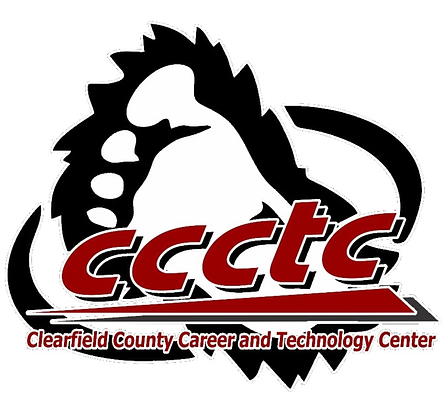Health Occupations Technology
Instructors:
Mrs. Jody Gunter, R.N., B.S.N., O.C.N.
Email Mrs. Jody Gunter
Mrs. Tonya Saggesse, M.S.N., R.N.
Email Mrs. Tonya Saggess
1-814-765-5308
CIP CODE: 51.0899
Health Occupations Technology is a two-year comprehensive course that combines classroom instruction, laboratory practice, and clinical experiences in area hospitals and nursing homes.
The program is designed to provide students with a strong foundation in the healthcare field by blending academic study with practical, hands-on training. Students learn the language of medicine, the structure and function of the human body, the fundamentals of disease processes, and the essential skills required to provide safe, effective patient care.
Laboratory sessions allow students to practice real-world procedures and develop clinical confidence, while clinical rotations expose them to multiple healthcare environments where they can observe professionals and gain direct experience. These opportunities prepare students to understand the diverse career paths within healthcare and to begin exploring their individual areas of interest.
In addition to academic and clinical preparation, students receive training that equips them for future employment or further study in technical schools, colleges, or universities. The program also offers the opportunity to earn industry-recognized certifications, including CPR, First Aid, AED, and OSHA safety training, enhancing students’ readiness for the workforce.
Our Health Occupations Technology Program is committed to preparing students for success whether they choose to enter the healthcare workforce immediately or continue their education in a specialized healthcare career field.
College Credits available in Health Occupations Technology from:
Pittsburgh Technical College
St. Francis University
PA College of Technology
PA Institute of Technology
Greater Altoona Career and Technology Center
Commonwealth Technical Institute
Excelsior College
Great Johnstown Career and Technology Center
Soar Credits
Transferable College Credits
Anatomy & Physiology, Medical Terminology, Health Law and Ethics, and Health AND Wellness.
Topics Covered:
Anatomy and Physiology
Communications
Medical Records
Ethics
First Aid
CPR
Medical Terminology
Diseases
Infection Control
Patient Care
Career Information:
Health Occupations Technology can be a logical first step if you plan to further your education after high school graduation through Associate or Bachelor Degree Programs in Practical Nursing, Registered Nursing, Medical Lab Technician, Medical Secretary/Assistant, Occupational Therapy, Surgical Technician, Dental Hygienist, or numerous other medical fields. This program provides a strong foundation in the health profession.
What are the benefits?
ALL NEEDED FOR HEALTH CARE CAREERS
Health care is one of the fastest growing industries in the country with nearly unlimited occupational potential and job security.
Health Occupations Technology can be a logical first step if you plan to further your education after high school graduation through Associate or Bachelor Degree Programs.
Job opportunities that are available include, but are not limited to:
Registered Nurse
Medical Lab Technician
Medical Secretary/Assistant
Occupational Therapy
Surgical Technician
Personal Trainer
Military Placement
Veterinarian
Medical Doctor
Skills Needed:
A career in the healthcare field relies greatly on workers who know how to apply basic academic skills, use critical thinking skills, and be prepared to meet the physical demands of and be dedicated to the patients that they care for. Teamwork and the ability to truly function as a team player are essential to the success of a health care facility. A student in this program is also expected to maintain confidentiality of all experiences gained within local facilities and to learn and at all times practice proper safety procedures including the use of personal protective equipment.
